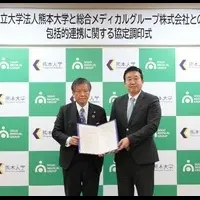
#United States
#Mission, Kansas
#Hypertrophic Cardiomyopathy
#American Heart Association
#Heart Awareness
Understanding Hypertrophic Cardiomyopathy: Importance of Family Heart History
Understanding Hypertrophic Cardiomyopathy: Importance of Family Heart History
Hypertrophic Cardiomyopathy (HCM) Awareness Day occurs on the last Wednesday of February each year, serving as a crucial reminder about a heart condition that greatly impacts families but often goes unnoticed. With HCM affecting about 1 in every 500 people in the U.S., it's vital for families to have conversations about their heart health. Knowing your family's medical history can lead to early detection and prevent potential tragedies like sudden cardiac death.
What is Hypertrophic Cardiomyopathy?
HCM is characterized by the thickening of the heart muscle, which can hinder the heart's ability to pump blood effectively. Symptoms can range from fatigue, dizziness, and chest pain to no noticeable symptoms at all. This variance makes it critical for individuals with a family history of HCM to seek screening through echocardiograms or genetic testing, allowing for early diagnosis and the possibility of effective treatment.
The condition is particularly concerning for young athletes, who may be at heightened risk of sudden cardiac death due to HCM—sometimes without any prior warning. Those who are affected need to be aware of their condition and take appropriate precautions.
The Young Athlete Connection
Research indicates that young athletes, particularly those in high-intensity sports like football and basketball, face an elevated risk of HCM. In particular, studies have shown that Black male athletes may have an even higher prevalence of this condition. In the past, athletes diagnosed with HCM were often advised to forgo intense physical activities; however, recent guidelines established by the American Heart Association and other organizations suggest that many individuals with HCM can engage in safe exercise—provided they create tailored activity plans under the guidance of knowledgeable healthcare professionals.
Finding Support in the Face of HCM
Living with HCM can be daunting; however, individuals affected by it do not need to traverse this journey alone. The American Heart Association offers support networks designed to connect patients, their caregivers, and loved ones. These platforms provide opportunities for sharing experiences and finding encouragement in shared struggles. If you or your family members have a known history of heart conditions, including cardiac arrest or HCM, discussing screening options with your healthcare provider could be life-saving.
Furthermore, the AHA’s resources for young athletes can enhance understanding and management of HCM, as well as promote safe participation in sports. Educational initiatives like heart.org/HCMStudentAthlete help spread awareness and equip families with information they need to make informed health choices.
Conclusion
Awareness about HCM and its implications for families, especially those with existing cardiac conditions, is essential in fostering cardiovascular health. Knowledge is a powerful tool; knowing your family’s heart history can lead to preventative measures that may save lives. Encourage your loved ones to talk about their heart health and advocate for regular screenings if there are shared risk factors. By doing so, we can work towards lowering the risks associated with HCM and fostering a healthier future for our families and young athletes.
For more information, visit the American Heart Association to learn about screening options, education, and resources dedicated to managing this potentially life-threatening condition.
Topics Health)










【About Using Articles】
You can freely use the title and article content by linking to the page where the article is posted.
※ Images cannot be used.
【About Links】
Links are free to use.